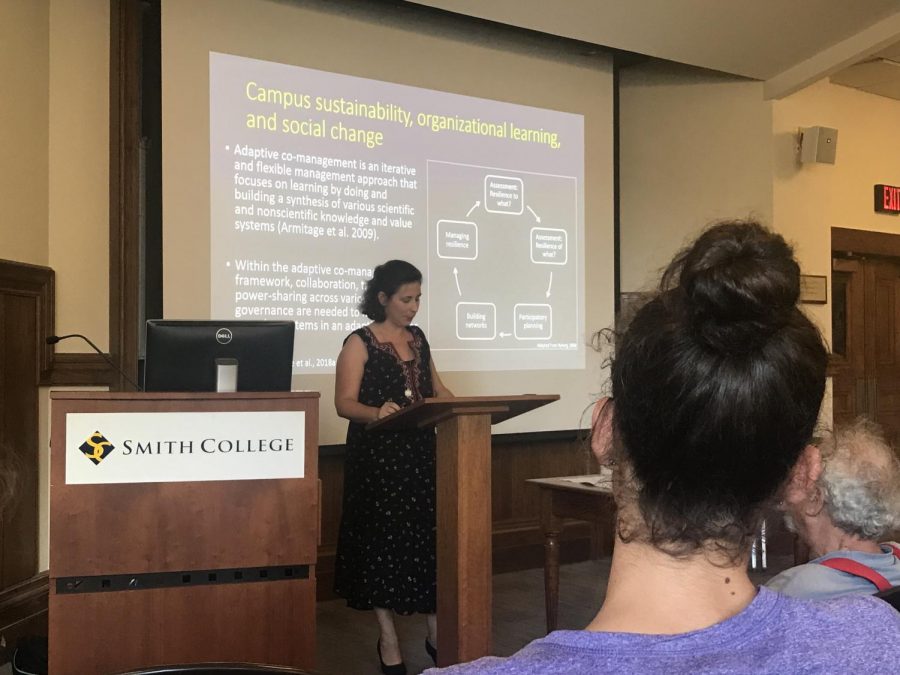Camille Washington-Ottumbre, an assistant professor of environmental science and policy at Smith College, discussed her research on how college campuses, as well as Kenyan and Moroccan communities, respond to climate change during a lecture Tuesday night.
Washington-Ottumbre opened her talk by emphasizing the importance of human organization’s substantive and meaningful adaptation to climate change.
“Implementing ready-made solutions and quick fixes is not going to be enough,” Washington-Ottumbre said.
The over-arching research question, Washington-Ottumbre said, was, “How do groups of people address climate change and in order to enact more socially-just adaptations to this phenomenon?”
Washington-Ottumbre said this question guides her work.
One part of Washington-Ottumbre’s research focuses on the responses to climate change on college campuses.
“The greening of college campuses,” she said, began in the 1970s up until the 1990s. Initial efforts on college campuses were informal and ecologically-focused and “prioritized educating agents of change, students and modeling change on campus,” said Washington-Ottumbre.
Recycling was one model of change on campus.
Washington-Ottumbre concluded, from her research, that the responses to climate change from colleges in the United States were expansive, but superficial, and did not result in sustainable and long-lasting change.
Another part of her research addresses the responses to climate change in Kenyan and Moroccan communities.
Washington-Ottumbre explained that, “limited initiatives are supported by international actors to promote community-based adaptation to climate change.” Her international research was guided by the question of how local communities can promote sustainable practices in response to climate change while relying on local resources.
Washington-Ottumbre concluded from her research in Kenyan and Moroccan communities that the responses to climate change resulted in, “deep and durable change.” She described radical responses to climate change.
An aspect of Washington-Ottumbre’s research, and what divided superficial from substantive responses, was the theory of single-loop, double-loop and triple-loop learning.
“Could you clarify?” asked Taylor Difmar, a freshman at Smith College who is undeclared but intending to be an environmental science and policy major during the question and answer about the theory of single loop learning.
Washington-Ottumbre responded with an example of recycling. She explained that many become fixated on recycling, an example of single-loop learning, but considering the amount of waste one generates is an example of double-loop learning.
The responses between higher education institutions in the U.S. versus sub-Saharan African communities were “very, very different,” said Washington-Ottumbre. “Climate change is a ‘wicked’ problem,” Washington-Ottumbre said, quoting Ritte and Coebber.
“Were each college campuses’ results superficial?” asked Jen Beltran Gastelum, a freshman at Smith College who is undeclared but intending to be an environmental science and policy major.
Washington-Ottumbre argued that while there has been progress since initial responses to climate change efforts still need to be deeper.
Washington-Ottumbre has been an assistant professor at Smith College since 2014, and her teaching and research examine adaptation to climate change and environmental justice. Before coming to Smith, Washington-Ottumbre served as an assistant professor at Oberlin College. She received her B.A. from Institut d’Études Politiques in Strasbourg, France, M.A. École des Hautes Études en Sciences Sociales in Paris, France and Ph.D. from Purdue University.
Elizabeth Donoghue can be reached at [email protected].



















